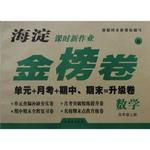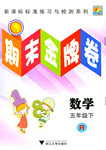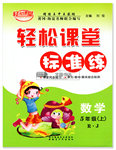题目内容
Let children learn to judge their own work. A child who learns to talk does not learn by being corrected all the time. If corrected too much., he will stop talking. He notices a thousand times a day the differences between the language he uses and the language those around him. Little by little, he makes the necessary changes to make his language like other people’s. In the same way, children learn to do all the other things without being taught-to walk, run, climb, whistle, ride a bicycle-compare their performances with those of more skilled people, and slowly make the needed changes.
But in school we never give a child a chance to find out his mistakes and correct them himself. We do it all for his act as if we thought that he would never notice a mistake unless it was pointed out to him, or correct it unless he was made to. Let him work out, with the help of other children if he wants it, what this word says , what the answer is to that problem, whether this is a good way of saying or doing this or not.
If it is a matter of right answers, as it may be in mathematics or science, give him the answer book. Let him correct his own papers. Why should we teachers waste time on such routine(daily) work? Our job should be to help the children when they tell us that they can’t find the way to get to measure their own understanding, how to know what they know or do not know.
【小题1】 According to the passage, the best way for children to learn things is by ______.
| A.listening to the advice of grown-ups. |
| B.asking adults many questions. |
| C.making mistakes and having them corrected. |
| D.doing as other people do by themselves. |
| A.Give children correct answers. |
| B.Allow children to make mistakes. |
| C.Tell the children what is wrong with their work as often as possible. |
| D.Let children judge their own work. |
| A.encourage children to learn from each other. |
| B.point out children’s mistakes whenever they are found. |
| C.correct children’s mistakes as much as possible. |
| D.teach children more knowledge from book. |
| A.different from learning other skills. | B.the same as learning other skills. |
| C.more important than other skills. | D.unnecessary skills. |
| A.Let Us Teachers Stop Working. | B.Let Children Alone. |
| C.Let Children Correct Their Exercises. | D.Let Children Learn by Themselves. |
【小题1】D
【小题2】C
【小题3】A
【小题4】B
【小题5】D
解析试题分析:
【小题1】D 根据第一段2,3,4行He notices a thousand times a day the differences between the language he uses and the language those around him. Little by little, he makes the necessary changes to make his language like other people’s.说明让孩子自己按照别人的样子去做,这样才是学习的方法。故D正确。
【小题2】C 推理题。根据文章第二行If corrected too much., he will stop talking.说明如果我们过多纠正孩子,会导致孩子不学习。故C的做法是老师不应该做的。
【小题3】A 推理题。根据第二段第三行Let him work out, with the help of other children if he wants it说明老师要鼓励孩子们相互学习。故A正确。
【小题4】.B 细节题。根据第一段后三行In the same way, children learn to do all the other things without being taught-to walk, run, climb, whistle, ride a bicycle-compare their performances with those of more skilled people, and slowly make the needed changes.说明学习这些的方法和学习语言是一样的。故B说法正确。
【小题5】.D 主旨大意题。文章讲述了孩子学习知识的好方法,就是让孩子自己去学,不要过多的去干扰孩子的学习,让他们从经验中学,相互学习。故D说法正确。
考点:考查教育类短文阅读
点评:文章讲述了孩子学习的方式:从错误中学,从旁边的人的行为中学习,从经验中学。作为老师不应该过多地纠正孩子。文章所设试题主要考察细节查找,做题关键是找出原文的根据,认真核查题支和原文的异同,常犯错误有:绝对化语言,范围扩大或缩小,以偏概全,张冠李戴等。

 海淀课时新作业金榜卷系列答案
海淀课时新作业金榜卷系列答案 期末金牌卷系列答案
期末金牌卷系列答案 轻松课堂标准练系列答案
轻松课堂标准练系列答案Most British parents give their teenagers pocket money.Teenagers get between£7 and£20 a week.They spend it on fast food,designed clothes,the cinema,concert,magazines and mobile phones.
1)Lazy parents?
37%of parents pay teenagers to clean the living room,66%of parents pay teenagers to take the rubbish out.
2)Lazy teens?
51%of teenagers don’t make their beds before they leave home.
Only 1 3%of teenagers wash the car for money.
Some parents even pay their teenagers to do their homework.
3)Equality?Not Yet!
Boys get more money than girls for most odd jobs.
For washing the dishes,boys get about£4 and girls get about£1.
4)And if you need some more money?
Teens get an extra£250 a year out of their parents on top of pocket money!
About 50%of teens get gifts or money from their grandparents.
Go to Mum if you need extra money! She gives more than Dad.
5)Where you live makes a difference!
Parents in Scotland and the North of England give more pocket money.
6)Spending
51%of teenagers spend their money on clothes.
39%of teenagers buy cosmetics(装饰品),jewellery and toiletries(洗漱用品).
Less than 30%of teenagers save any money.
7)Earnings
Here are some children who tell us about their pocket money:
Emma:I get£30 a month.I have to take the rubbish out and tidy my room.
James:I get£10 a week.But I have to clean the car,hoover(用真空洗尘器清洗)the house and load and unload the dishwasher.I usually save the money.
Lain:I get£7.50 a week.I have to be“good”but I don’t have to do any jobs for the money.
Richard;I get£5 a week.But our neighbors go away a lot and they give me£25 a week for looking after their cats.
【小题1】This passage is mainly about .
| A.teenagers everywhere get pocket money |
| B.how to spend pocket money |
| C.some bits about pocket money in Britain |
| D.how to get pocket money |
| A.Parents are lazy so they let children do housework. |
| B.Teens are too lazy to do housework unless they are given pocket money. |
| C.The pocket money boys and girls get is not equal. |
| D.It is not right for children to ask for pocket money. |
| A.boys earn more money at home than girls |
| B.girls earn more money at home than boys |
| C.only rich parents give children pocket money |
| D.most children spend their pocket money |
| A.Emma | B.J ames | C.Lain | D.Richard |